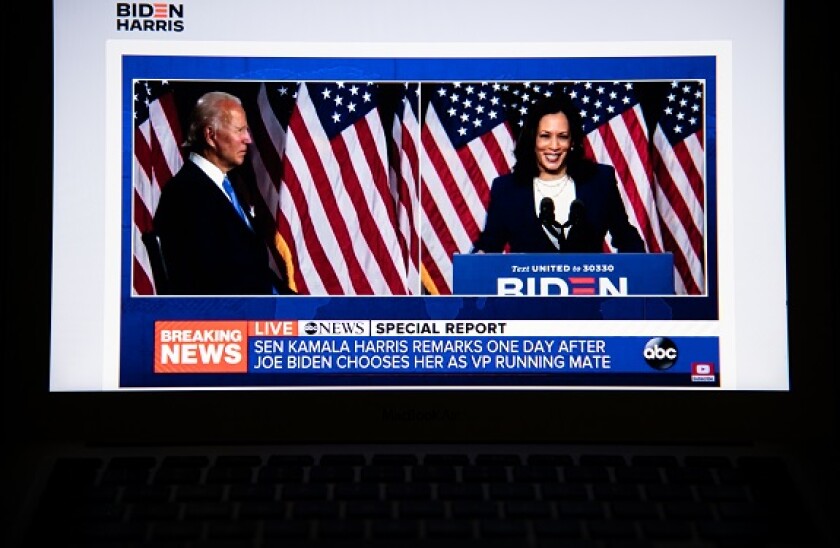Simon Webber, lead portfolio manager at Schroders, reckons that equity investors have failed to grasp the potential for decarbonisation of the US economy if Joe Biden wins the US presidential election in November.
While “simple economics” is leading to some change regardless of policy, the person at the top makes quite a difference, Webber argues.
“A Biden victory, especially if combined with the Democrats taking the Senate, would add huge impetus to the transition. The growth outlook for electric vehicles, renewables, hydrogen power, battery storage, and many more industries would be turbo-charged in this scenario and investors should prepare for that possibility.”
What investors are overlooking most of all is how a Biden presidency would give impetus to global efforts to cut carbon emissions, leading to quicker change around the world.
We know he’s up in the polls, and as of this week who his running mate is, but what are the chances of a Biden win? News site FiveThirtyEight has just released its much-awaited forecast for the election. It currently gives Biden a 73% chance, based on how many times he wins in the model’s simulations.
“It doesn’t seem as if Joe Biden’s advantage is shrinking,” FiveThirtyEight says. “He still leads president Trump by more than eight points in our national polling average. However, some state polls have shown better numbers for Trump in recent days. Our forecast still shows Trump with a meaningful chance of winning because, simply put, there’s plenty of time for the race to change.”
Away from politics, Tirupam Goel and José María Serena at the Bank for International Settlements have written a bulletin on the decoupling of the bond and syndicated loan market this year, which they say is similar to what happened after the last crisis.
“Although the current crisis did not originate in the banking sector, banks seem to be pulling in their horns as their lending capacities have been hit, and a dim economic outlook has made them more cautious,” they write.
“At the same time, collateralised loan obligation (CLO) issuance has declined and end investors have become more risk-averse — which has created additional blockages in the complex plumbing of the syndicated loan market.”
Banks may have had less desire to originate new loans because their credit lines were drawn down and because they have had to provision for loan losses.
The upshot is that large firms have dominated in the corporate borrowing spree, as they have better access to the bond market. The authors say that the average size of borrower, in terms of revenue, is twice as big as it was at the start of the crisis.
Why do bigger firms have better bond access? Well, they are more likely to have experience of issuing already. This means they have a relationship with underwriters and have already paid the fixed costs of issuance.
One of the points the authors make at the end is a potential warning sign, depending on how long the crisis wears on: “Dominance in bond-based borrowing by large firms could crowd out mid-sized firms, which are also creditworthy and may exhibit significant liquidity needs.”
Finally, in the world of cryptocurrency, Cointelegraph reports that a fresh and exciting decentralised finance (DeFi) app was launched without a proper code audit. A $60m market cap ended up vanishing into smoke in 35 minutes.
DeFi is the new craze in crypto. As with the rest of it, it is a dark mirror version of traditional financial activities — in this case, a hybrid of peer-to-peer borrowing and securities lending.
Those with crypto assets lying around can put them at the disposal of a DeFi service, which allows other users to borrow them at algorithmically determined rates (usually on a collateralised basis, often for the purpose of short selling). It has exploded in popularity over the past few months.
YAM was just the latest example. It was launched earlier this week, and swiftly amassed a $60m market cap and $460m in TVL (total value locked, or crypto assets in its system).
A single line of inadequately checked code has tanked its value and permanently locked $750k of crypto assets.

